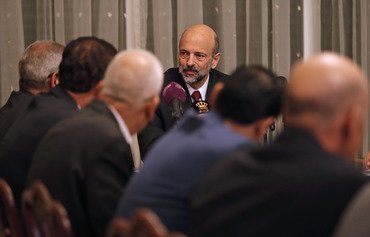Jordan's new prime minister on Thursday (June 7th) announced a controversial IMF-backed income tax bill will be withdrawn, after it sparked a week of angry protests in the kingdom, AFP reported.
Crowds have taken to the streets to demand the government drop the unpopular reforms, in some of the biggest economic protests to hit Jordan over the past five years.
Doctors, lawyers and teachers staged a strike across the country Wednesday as discontent over high unemployment, poverty and price rises bubbles over.
New premier Omar al-Razzaz, appointed by King Abdullah after his predecessor quit over the protests on Monday, announced after talks with legislators that an "agreement had been struck" to withdraw the bill.
He said the legislation would be sent back by parliament to the government once a new cabinet is formed, with that process expected to take several days.
Al-Razzaz was ordered by the king to carry out a "comprehensive review" of the tax proposals after the country was rattled by days of protests.
Jordan has blamed its economic woes on instability wracking the region and the burden of hosting hundreds of thousands of Syrian refugees without adequate international support.
The tax bill was the latest in a series of austerity measures to cut national debt since Amman secured a $723-million loan from the IMF in 2016.
The controversial legislation that has sparked much of the ire would have raised taxes on employees by at least 5%, and on companies by between 20 and 40%.





